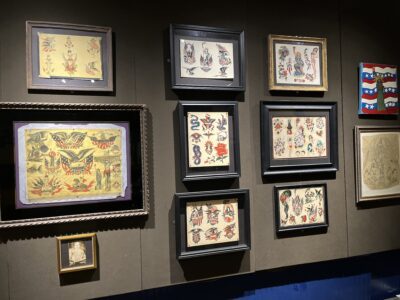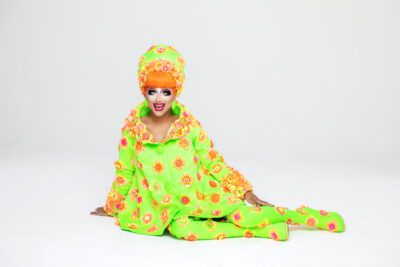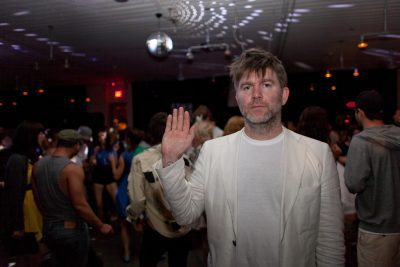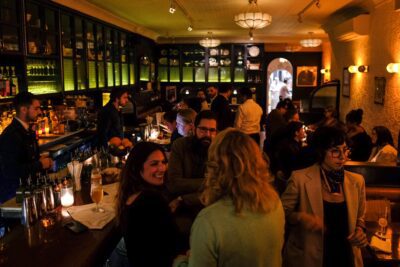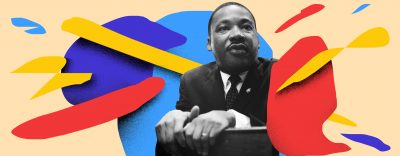Teklai hosting Fools Circle on Saturday (Karina Guerrero)
A space for Black joy, the Fools Circle comedy series returns
'The institution of comedy is changing,' says Fools Circle founder Jonathan Teklai, who is doing his part to challenge the gatekeepers
Jonathan Teklai knows how to set the mood.
First, he takes you outside, onto a grassy, sloped hill lined by trees. Then the music: not trap to start; that’s for the after party. Before the show, a range of vibey, Black music to match the “beautiful, predominantly Black audience,” is best he says. The aromas naturally follow. As the warm night descends, you’ll smell shea butter, some weed and an incense or two.
Then come the jokes.
Teklai is the founder and host of Fools Circle, a comedy experiment that took its basement, party-like shows to Prospect Park during the summer of 2020 when comedy clubs across New York City were shutting down. And now they’re back, pushing the boundaries of where comedy can exist and who it’s created for.
“The institution of comedy is changing,” says Teklai, commenting on the pandemic’s unravel—however temporary—of industry gatekeeping.
By 4 p.m. on Saturday afternoon several hundred comedy fans gathered in Prospect Park, on the hill behind the Maryland Monument, to witness the return of Fools Circle. “Today’s my five year New York anniversary,” Teklai, 33, told them as he kicked off the show, which featured six comedians doing a tight 10 minute set.
Teklai shed his first-generation Eritrean, “good corporate boy” career in tech back on the West coast to join New York’s comedic hustle in 2017. He worked part-time to finance his comedy career and took improv classes with the Upright Citizens Brigade. “I got one of their token scholarships,” he half-jokes about the legendary (and legendarily white) institution.
By February 2020, he’d already thrown successful Fools Circle pop-up comedy shows and afterparties, giving him a sense of having arrived on the scene.
And then the pandemic hit.
Comedic pivot
Comedians adapted just like everyone else: They began live-streaming on social media, performing on Zoom and posting solely online content.
“There was creativity in ‘the show must go on’,” says Anita Flores, a Queens native whose comedy career began 15 years ago. But these formats couldn’t match the energy comedians got from live performance, she says.
So when she came across the in-person laughter and community emanating within Prospect Park amidst pandemic isolation and the aftermath of George Floyd’s murder, Flores was enamored.
“It was 2020, so weed wasn’t quite legal,” she recalls, “but the cops didn’t care.” She describes it felt like a ceasefire at these shows, a safe space for Black people and people of color to come together and share joy.
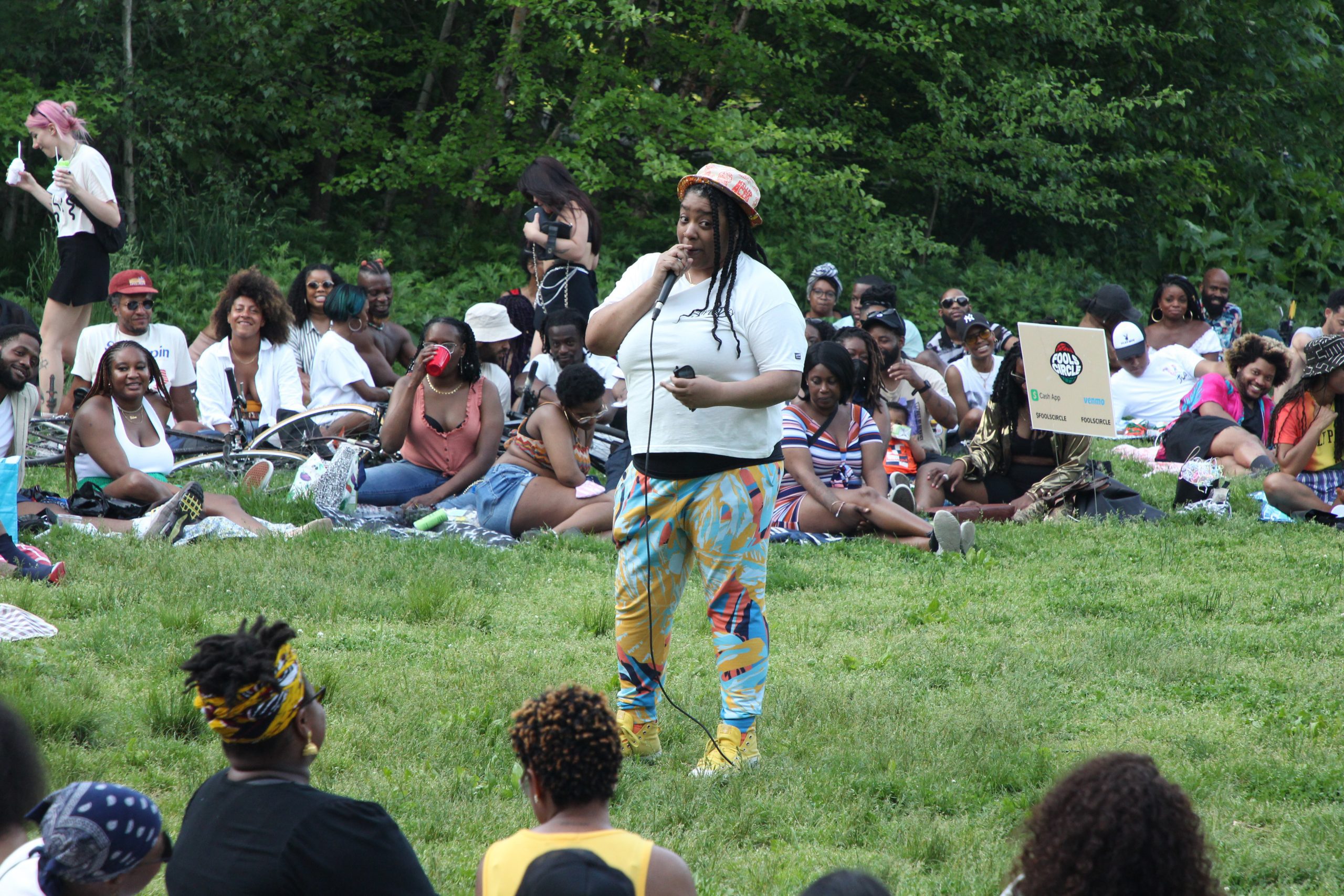
Comedian J.J. Mattise performs at Saturday’s show (Karina Guerrero)
‘I’m the race comic’
Teklai remembers that summer heavily lit by the political fire of that moment: Trump, pandemic, Black Lives Matter. But now, the fire has diminished.
“I’m the race comic. There were a lot of jokes that didn’t get love before summer of 2020. They didn’t hit as hard, and they don’t hit as hard now,” he says.
Teklai says his tweets would go viral then, back when his followers were more fixated on Trump’s racism or institutions making “performative” statements in support of Black Lives Matter, he says. That’s not quite the case today.
Pop culture is just expired Black culture
— Teklai (@Teklai_) September 16, 2020
Arti Gollapudi, another Brooklyn-based comedian, blames it on society’s desire for a return to “normalcy” across the board.
She says as soon as the pandemic started to feel less prominent with vaccinations and re-openings, normalcy also trickled down to diversity because “whiteness is normalcy.”
“In June 2020, there was a moment—we thought we would have more representation,” Gollapudi says about the industry’s scramble to diversify lineups—even if they were virtual.
At Saturday’s show, Teklai fired jokes at Barack Obama’s legacy, Joe Biden’s reputation with Black people and newly confirmed Supreme Court Justice Ketanji Brown Jackson with mixed responses.
“I’m so excited to have the first Black woman on the Supreme Court to oppress other Black women,” he said, before “switching back to dating jokes.”
Among the hundreds of attendees at Saturday’s show was George Chapman, 32, who’s returned each year because he sees Fools Circle as part of a larger cause.
“I think ultimately, [these shows] are huge progress towards Black liberation,” he says. “Here we have this beautiful event where Black people can show up and look like however they want to look like, and they can smile, and they can form community with each other … and laugh because we all need to laugh in a time like this.”
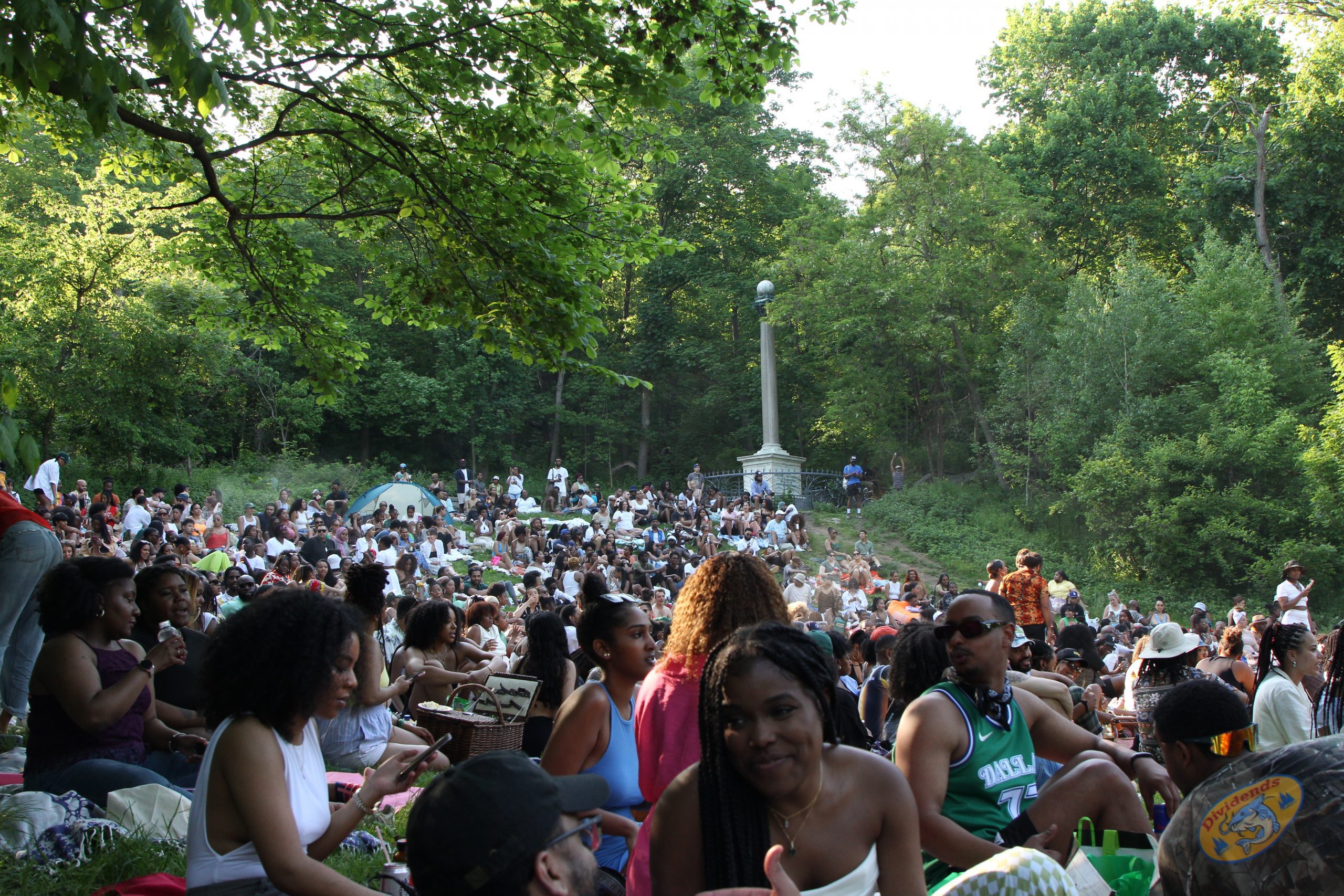

Below the Maryland Monument (Karina Guerrero)
Industry evolution
For decades, the comedy industry has been slowly cracking open.
Both Flores and Gollapudi give credit to New York’s comedy underground, which began expanding stand-up to include dancing, singing, slide-shows and skits in the mid 2000s. This, by extension, generated new types of venues and performers.
“What people are accepting as stand-up comedy is changing,” says Flores, a trend she notes has only been intensified by the pandemic lockdowns and forced adaptation.
“It often feels like two worlds,” she says.
There are of course still the well-known spaces like The Stand and Comedy Cellar in Manhattan; venues with a higher price tag, maybe a drink minimum, that often feel like they’re catering to tourists. These are places with producers and managers sitting in the crowds, she says, admitting it’s a big deal to headline here.
But they’re also “male-dominated” and reflective of the whiteness of the industry, she adds. One need look no further than the fact that Louis C.K. is still winning Grammys in 2022.
“I can’t tell you why those lineups still haven’t changed,” Flores says.
And while these venues have set industry standards for decades, spaces like Caveat on the Lower East Side and, in Brooklyn, Union Hall, The Tiny Cupboard and Littlefield have fostered spaces for comedians like Patti Harrison,a comedian who brings her transgender experiences to the forefront as she punches upwards, says Flores.
Eight years into her career, Gollapudi says she’s found success performing at these types of venues, which she says is largely due to the support for and inclusivity of people of color fostered by these environments.
Still, getting booked is about a comedian’s credits—whether they’ve appeared on Comedy Central or Saturday Night Live or HBO. Big breaks like these are even more difficult for comedians of color when white talent for white audiences is the norm.
Teklai is using Fools Circle to challenge this. “I don’t factor in white people when I make comedy,” he says.
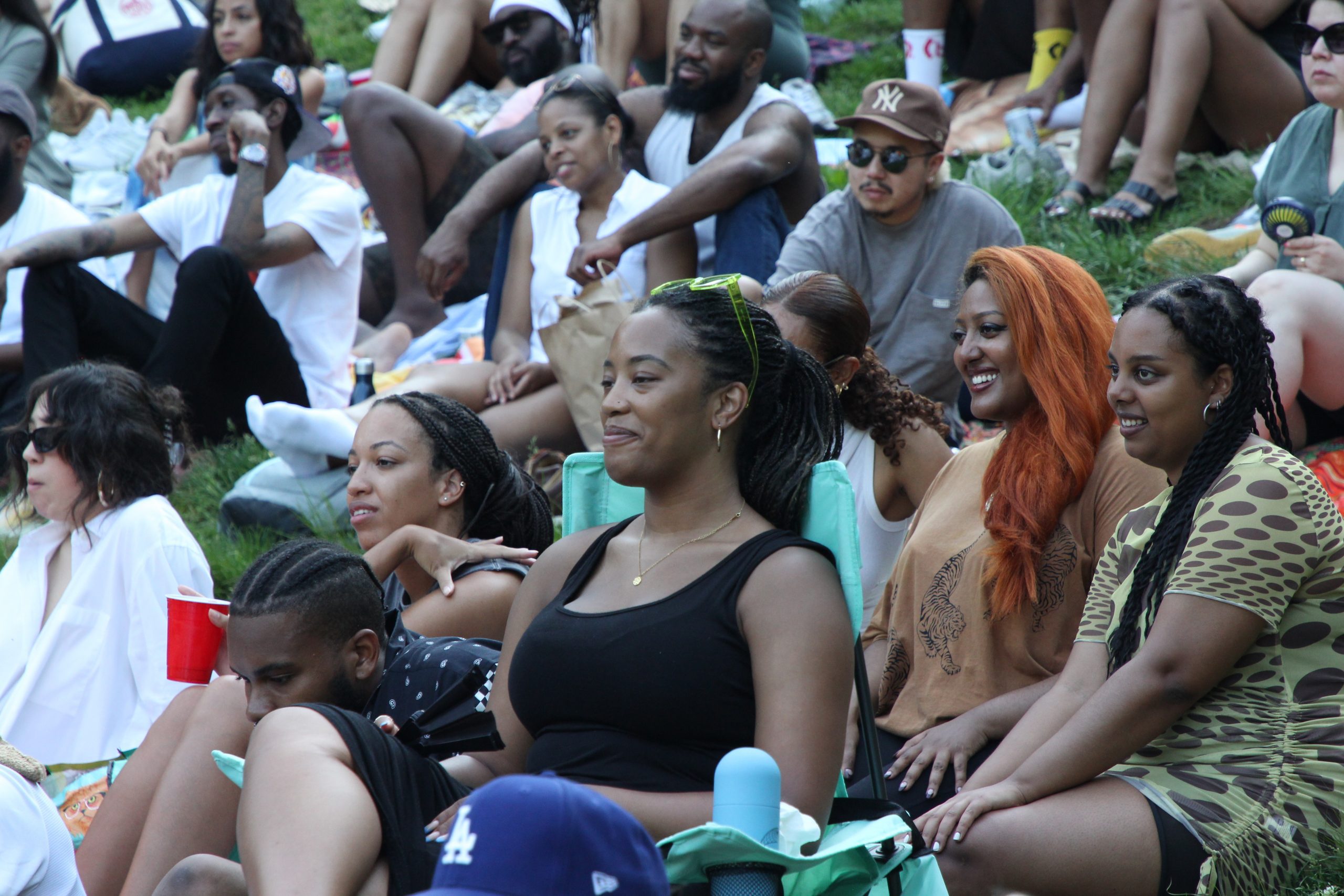

(Karina Guerrero)
Fools Circle will run every third Saturday of the month from May to September from 4 to 8 p.m.
You might also like 

















